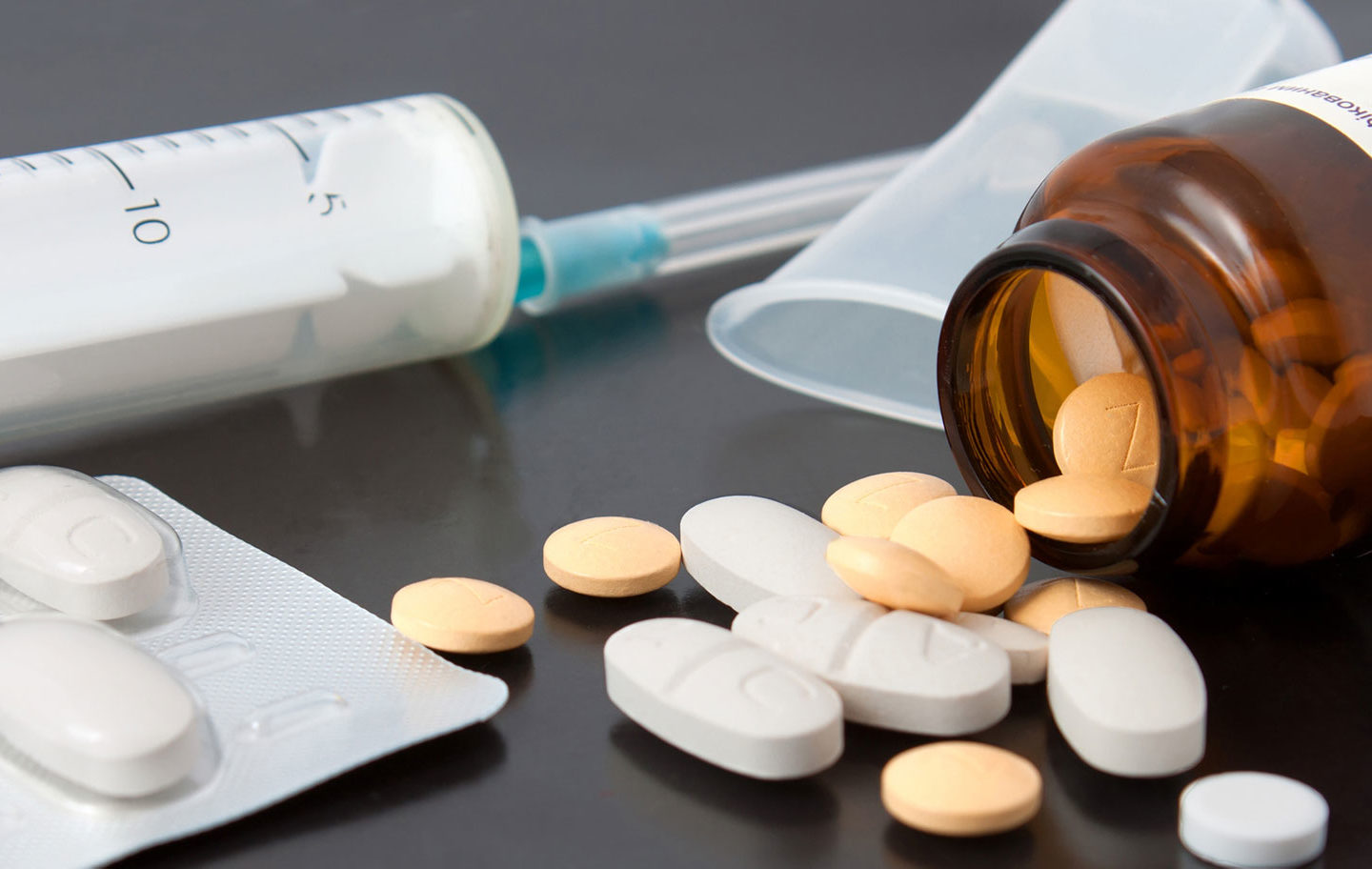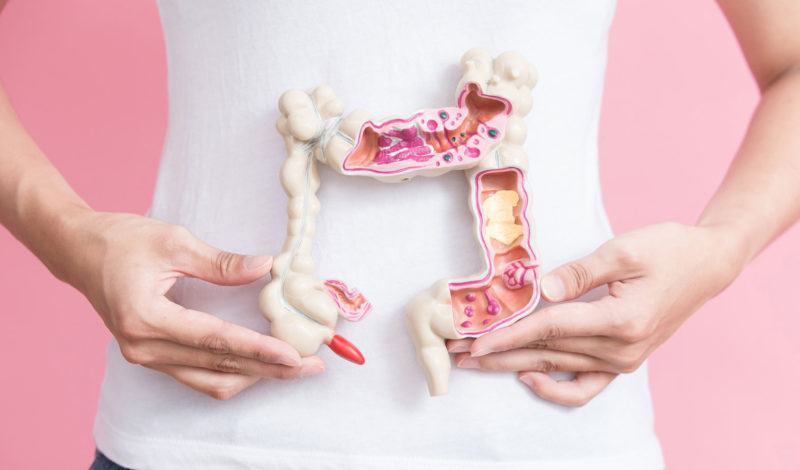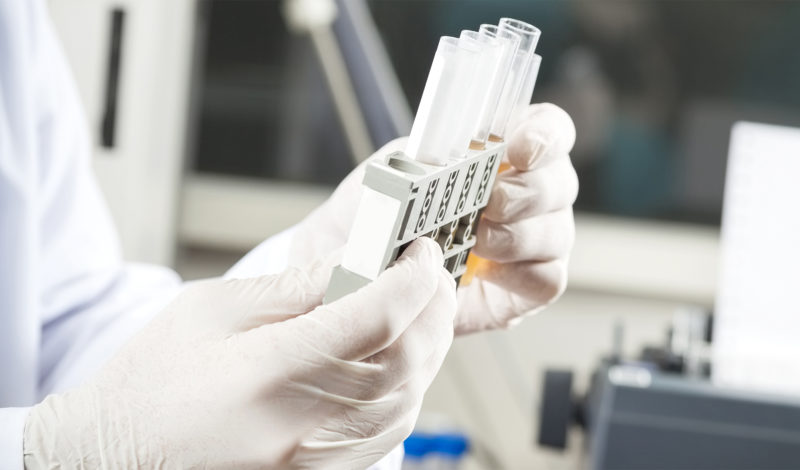If you have bowel disease symptoms, the question you may have is: Are the symptoms due to the intestine or [...]

Intestinal inflammation: Do medicines have to be taken?
In the case of intestinal inflammation – i.e. gastroenteritis – the intestinal mucosa is usually irritated. The triggers for the irritation can be very different. As soon as inflammation occurs, the immune cells react to protect the body. However, this reaction results in symptoms such as severe abdominal pain or diarrhoea and sometimes vomiting.
Depending on the severity of the intestinal inflammation and the symptoms that occur, different measures may be appropriate. Medicine for intestinal inflammation is not always necessary – it always depends on who or what is responsible for the inflammation.
Intestinal inflammation is not equal to intestinal inflammation
With diarrhoea and abdominal pain probably everyone has already collected his experiences. These or similar complaints are not always caused by serious illnesses. Sometimes the food or too much stress simply hit you in the intestines. Viruses, bacteria or fungi can also be behind intestinal inflammation.
Causes of intestinal inflammation
Viruses are the most frequent cause of intestinal inflammation. However, the viral intestinal infection usually heals quickly. In the case of this mostly mild intestinal inflammation, medicine for intestinal inflammation is not always necessary. A lot of rest and sufficient drinking are usually sufficient.
Bakterien können ebenfalls Darmentzündungen auslösen. Sie sind jedoch seltener die Ursache – zum Glück, denn Darmentzündungen, die durch Bacteria can also cause intestinal inflammation. However, they are rarely the cause – luckily, because intestinal inflammations caused by bacteria often cause severe complaints. Doctors can prescribe antibiotics against bacteria. However, antibiotics not only kill the “bad” bacteria, they also kill useful ones. herefore, antibiotics should not be prescribed and taken hastily. Besides it is recommended to take special care of the intestinal flora after taking antibiotics.
Fungi can also trigger inflammation in the intestinal mucosa. The yeast Candida albicans is often the cause. If it reproduces too strongly, it is easier to have an inflammation. An intestinal inflammation caused by fungi causes rare diarrhoea. A watery stool is otherwise generally one of the most common symptoms of intestinal inflammation.
In some cases, however, the cause is actually disease, and those affected suffer regularly and over a long period of time from intestinal inflammation. Chronic inflammatory bowel diseases (IBD) such as Crohn’s disease and Ulcerative colitis are a common cause of discomfort. In both diseases the immune system reacts more strongly than normal; particularly pronounced inflammations and inflammatory reactions develop.
Those who suffer from these chronic intestinal inflammations must regularly take medication – even in phases in which the symptoms are hardly or not at all present. This involves the use of medicines with a wide variety of active ingredients, such as steroids, salicylates or antibiotics.
The condition of the intestinal flora largely influences the diet. If the balance in the intestine is disordered, bacteria that promote inflammation can sometimes reproduce. The good news: If the diet is the cause of your intestinal inflammation, you do not have to take any medication. In this case, the right food is the best long-term remedy for intestinal inflammation.
Because every bacterium likes to eat something different: If you starve the bacteria that can prevent inflammation, and feed others diligently for it, who on the contrary tend to cause anxiety, the consequences are quite predictable. That’s why your bowel – and your whole body in general – thanks you for balanced nutrition, so that all intestinal inhabitants get enough food. If there is a healthy balance in the intestine, inflammation or other complaints are less common.
Preventing intestinal inflammation without medicine
If you want to know more about the balance in your intestines, whether your intestinal flora is balanced and how you can help your good bacteria, have your intestinal flora analysed.
- Sources:
- Sicard, J. F., Le Bihan, G., Vogeleer, P., Jacques, M., & Harel, J. (2017). Interactions of Intestinal Bacteria with Components of the Intestinal Mucus. Frontiers in cellular and infection microbiology, 7, 387. https://doi.org/10.3389/fcimb.2017.00387
- Ouwerkerk, J. P., de Vos, W. M., & Belzer, C. (2013). Glycobiome: bacteria and mucus at the epithelial interface. Best practice & research. Clinical gastroenterology, 27(1), 25–38. https://doi.org/10.1016/j.bpg.2013.03.001
- Morrison, D. J., & Preston, T. (2016). Formation of short chain fatty acids by the gut microbiota and their impact on human metabolism. Gut microbes, 7(3), 189–200. https://doi.org/10.1080/19490976.2015.1134082
- Bhaskaran, N., Quigley, C., Paw, C., Butala, S., Schneider, E., & Pandiyan, P. (2018). Role of Short Chain Fatty Acids in Controlling Tregs and Immunopathology During Mucosal Infection. Frontiers in microbiology, 9, 1995. https://doi.org/10.3389/fmicb.2018.01995
- Wehkamp, J., Götz, M., Herrlinger, K., Steurer, W., & Stange, E. F. (2016). Inflammatory Bowel Disease: Crohn’s disease and ulcerative colitis. Deutsches Aerzteblatt Online. doi: 10.3238/arztebl.2016.0072


